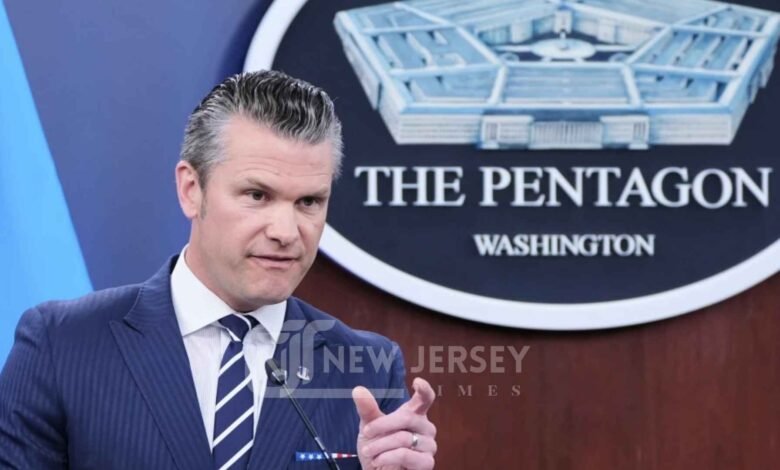
Washington, July 2 EST: For all the symbolic weight of U.S. aid to Ukraine—billions in weapons, diplomatic reassurances, standing ovations in Congress—the real backbone of the alliance has been steel: Patriot missiles, GMLRS rockets, Stinger launchers, Howitzers, and Hellfires. That pipeline, always stretched, has now been partially closed.
According to multiple reports from the Associated Press, the U.S. has paused deliveries of several frontline systems to Ukraine, citing internal concerns about depleted inventories. The Pentagon, under pressure to preserve U.S. military readiness amid global flashpoints, says the drawdown has gone too far.
The message to Ukraine: for now, you’ll have to make do.
Patriot Fatigue, and a Strategic Recalibration
The move is not a reversal of support, but it is a recalibration—and a telling one. Officials insist this isn’t a pivot away from Ukraine. But in practice, it amounts to a strategic blinking light: America’s generosity has limits. And after two years of steady outflows, some of those limits are material.
It’s not the first time U.S. defense posture has contracted under stress. During the height of the Afghanistan surge in 2009–2010, military planners warned that equipment cycles were unsustainable. Similar alarms are now sounding over Ukraine—not from doves, but from uniformed officials worried that U.S. readiness across other theaters, particularly the Indo-Pacific, is growing brittle.
Undersecretary Elbridge Colby put it in blunt terms: “We have to ensure we don’t compromise our own force posture. That’s non-negotiable.”
Capitol Hill Isn’t Sold
Lawmakers are already pushing back—especially those who see Ukraine’s survival as a test case for democratic resolve.
Rep. Marcy Kaptur (D-OH) warned that halting Patriot systems could result in real-time casualties. “There are no easy substitutes for what’s being paused,” she said, arguing that the cost of delay could be measured in civilian lives.
Others are more measured. Rep. Brian Fitzpatrick (R-PA), co-chair of the Ukraine Caucus, acknowledged the readiness issue but urged the White House to clarify whether this is a tactical pause or a strategic rethink. The distinction matters—not just to Ukraine, but to Europe.
Behind the scenes, NATO diplomats are asking the same question: Is this about logistics—or intent?
Ukraine’s Uncomfortable New Reality
For Ukraine, this isn’t the first time U.S. support has wobbled. Aid packages were delayed for months during a congressional standoff earlier this year. But this pause is different: it comes not from political dysfunction, but from inside the Pentagon.
The systems on hold are not symbolic. Patriot batteries, in particular, are essential to intercepting Russian ballistic missiles. Without them, Ukrainian air defense is patchwork at best—and Russia knows it.
That’s why Ukrainian officials are moving quickly to expand co-production deals with European allies. Germany, Denmark, and others are stepping up, but no one is pretending their output can match American supply in either scale or speed.
Strategic Drift or Strategic Discipline?
The broader context here is no less fraught. U.S. forces are increasingly tied down elsewhere—from monitoring a fragile truce between Israel and Iran, to reinforcing assets in the South China Sea. Defense planners talk about “flexibility,” but the bandwidth of American hard power isn’t infinite.
So the question becomes: Is Ukraine being deprioritized, or simply absorbed into a more cautious phase of U.S. engagement?
Biden officials say the pause is a reflection of strategic discipline, not retreat. But even that has consequences. Allies read pauses as precursors. Adversaries read them as permission.
For now, Ukraine will keep fighting, largely on the strength of what’s already been shipped—and what it can make or buy from others. But the dynamic has changed. The U.S. remains a partner, yes. Just not a bottomless one.
New Jersey Times Is Your Source: The Latest In Politics, Entertainment, Business, Breaking News, And Other News. Please Follow Us On Facebook, Instagram, And Twitter To Receive Instantaneous Updates. Also Do Checkout Our Telegram Channel @Njtdotcom For Latest Updates.

A political science PhD who jumped the academic ship to cover real-time governance, Olivia is the East Coast's sharpest watchdog. She dissects power plays in Trenton and D.C. without bias or apology.








